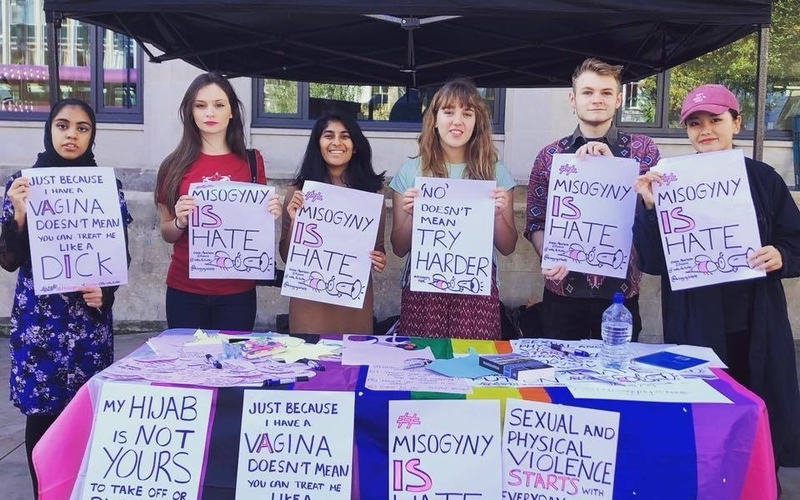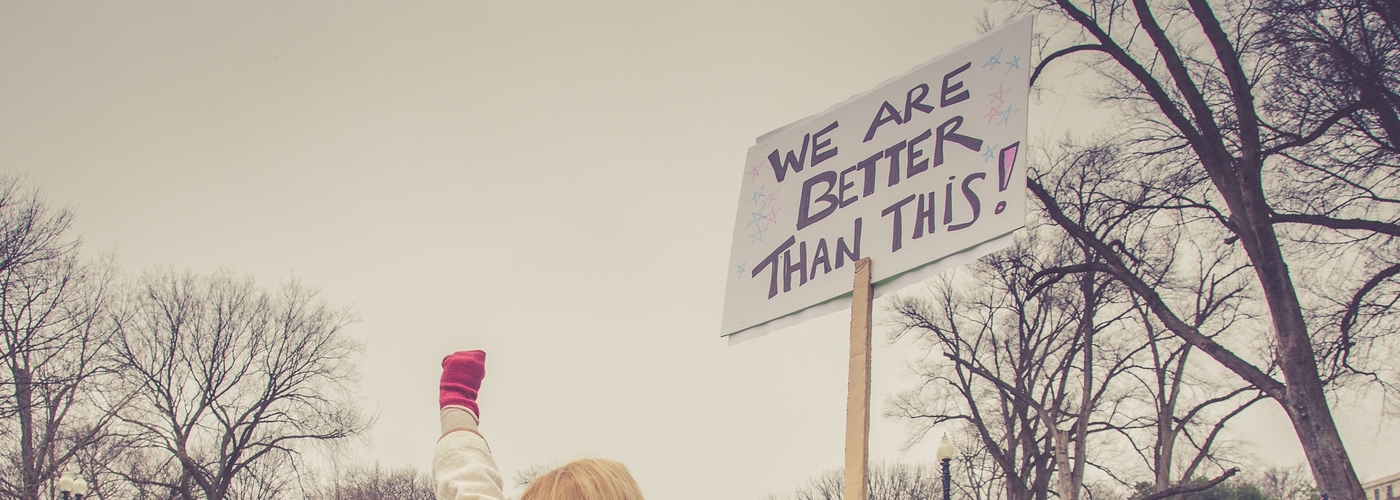Susan McNeil on 'lies', stats and being a liberated woman
Confidential articles frequently cause debate and a reaction. Here, a reader in a prominent city position, challenges recent calls for misogyny to be a hate crime. She argues that the modern trend to create ‘victims’ is counter-productive and, indeed, makes the situation worse.
She rebels against the orthodoxy of sympathy for anybody who claims to be a victim where the only measure of victimhood is subjective and not objective. Given the bile that is thrown at person online if they contradict what a particular group claims as an incontrovertible fact, and the wariness with which commercial and public bodies view deviation from the ‘party line, it is perhaps not surprising, if deeply worrying, that the article below has had to be submitted under a pseudonym.
POLICE figures say that 94,098 hate incidents were recorded in England and Wales in 2017/18. A rise of seventeen percent. We'd be forgiven for thinking that we are now gripped by bigotry and hatred on a scale never seen before.
This is a problem because it simply isn't true and it instils fear where it’s not necessary across many communities. The conflation of definitions spreads every day because so called ‘hate’ is recorded as an incident or maybe a crime if it is perceived to be hate by an alleged victim. There is no longer an objective judgement just a subjective one. This expansion of definitions does no favours to victims of serious crimes as the police are now too busy monitoring social media for so-called offensive words. Any interaction with another person, animal or inanimate object can now be recorded as a hate crime or incident - adding every day to the statistics of doom.
Typical of this was an article featured in Body Confidential that seemed hell bent on inflating the statistics on hate crimes or incidents even further by wanting to add ‘misogyny’ to the catalogue of hate and encourage reporting. So what will be reported to the police that isn't already? What do we want the police to do? Why are these groups wanting surveillance of everyday life? In the 21st century, do liberated women really want to be considered a minority identity group in need of protection from words and behaviours we don't like?
It is chilling that young women in this great city are constantly told they live in a sexist society...

But beware, public dissent from the contemporary feminist rulebook won't make you friends amongst politicians, nor the patronising, self selecting cliques and so-called campaigners that pop up in Universities.
What is this group of ‘Greater Manchester Citizens’ and what is motivating this small collective of University of Manchester students to want to emulate the Nottinghamshire police's current legislation? We're in danger of categorising women as a special group in need of protection from words.
The result is a sensationalist headline with bullshit statistics and hidden assumptions.
Body Confidential's article starts by claiming 90% of Manchester women want to see misogyny as a hate crime. 90%! Really? What is the source of that claim? (Ed: the statistics come via a survey conducted by Greater Manchester citizens, as well as data from Plan International and a recent YouGov survey). These statistics are thrown about unchallenged, with no questioning of definitions allowed by the feminist orthodoxy.
It is chilling that young women in this great city are constantly told they live in a sexist society and that they are to be oppressed by words and to fear men as they grow up and join the world of work.
Free thinking women of Manchester, don't buy this vision of the world. They get on with their lives, loves, work and freedoms that generations of truly oppressed women fought for. In this city we can generally walk anywhere at any time of day, we can be the boss if we work hard enough, we can juggle families and flexible working, we can wear any clothes we want. We are free and abuse and harassment of women is rarer now than at any time in the city's history. When it does happen then it needs action must be taken but it is not commonplace and inventing new language crimes simply encourages young women to see themselves in need of special protection. We should use our freedoms for real change. Here’s an idea: let’s get out of the house and leave the focus group and be liberated women.




